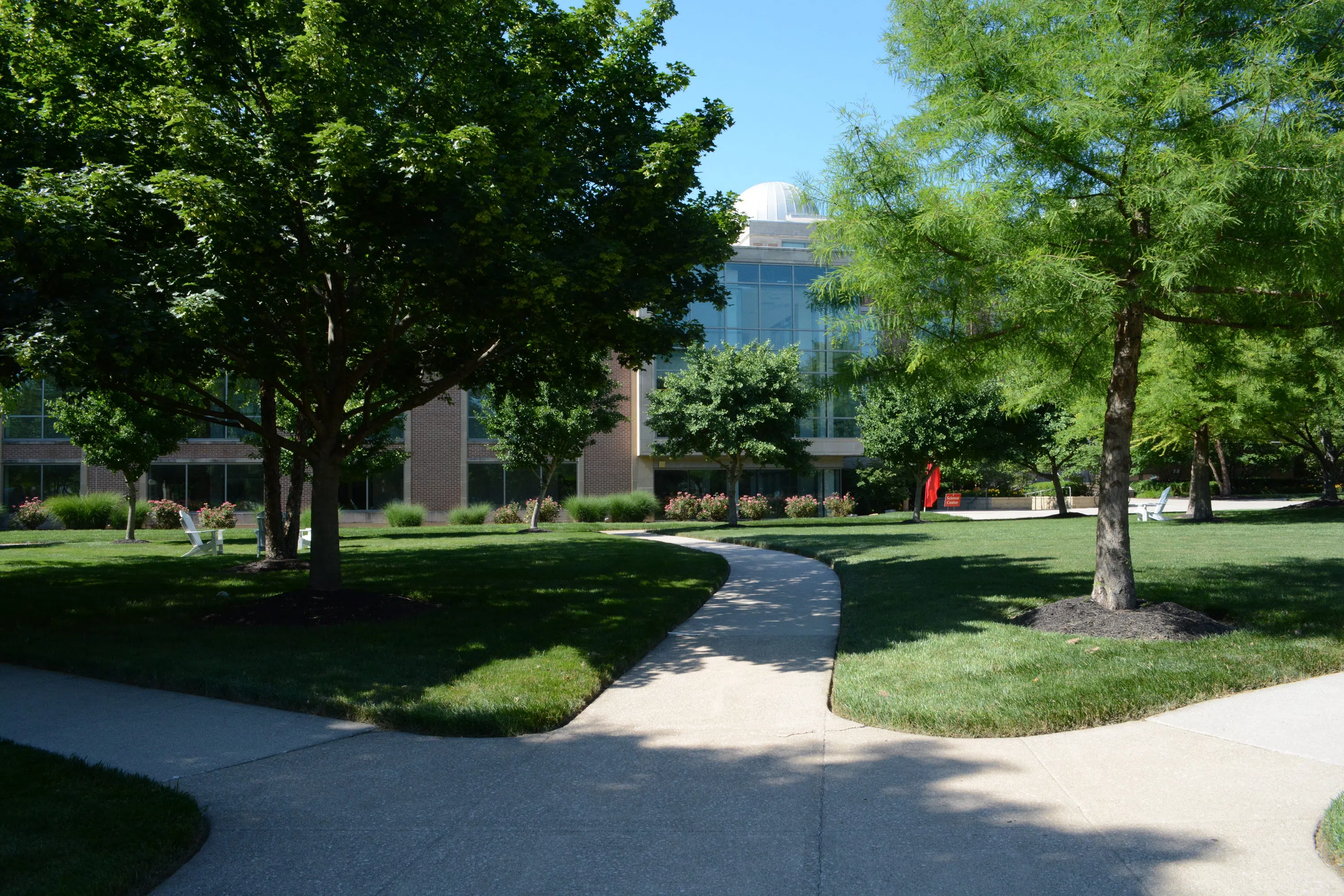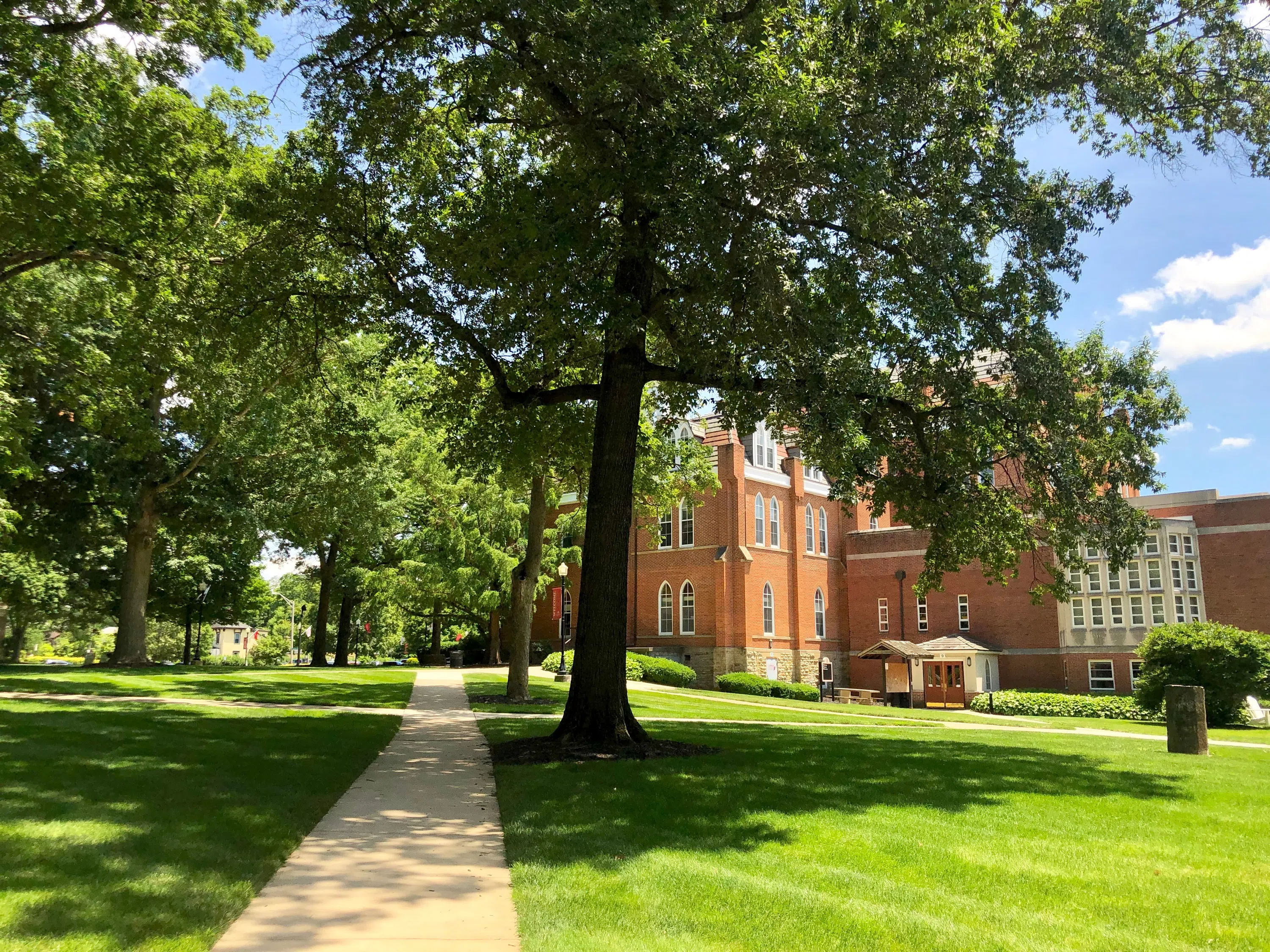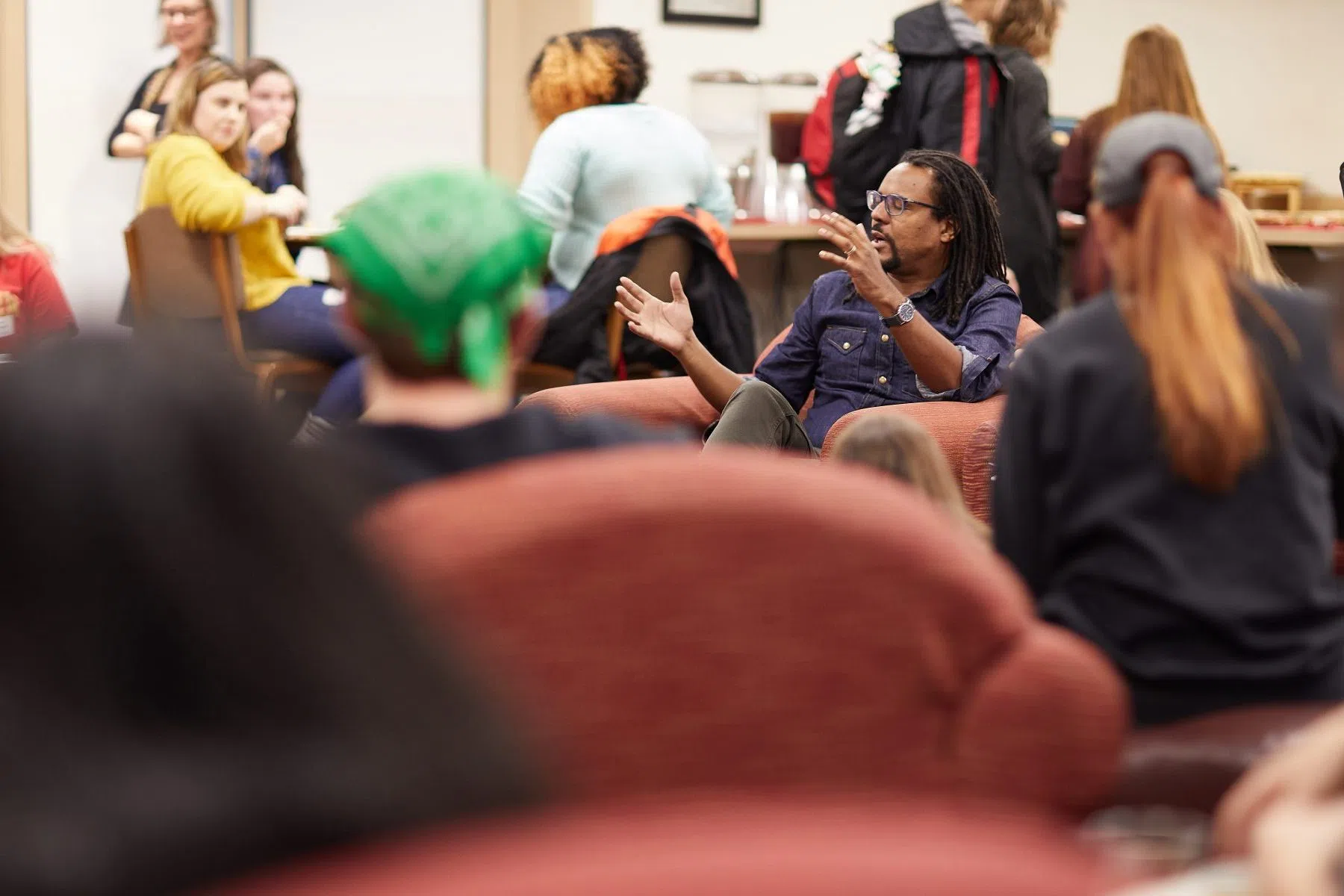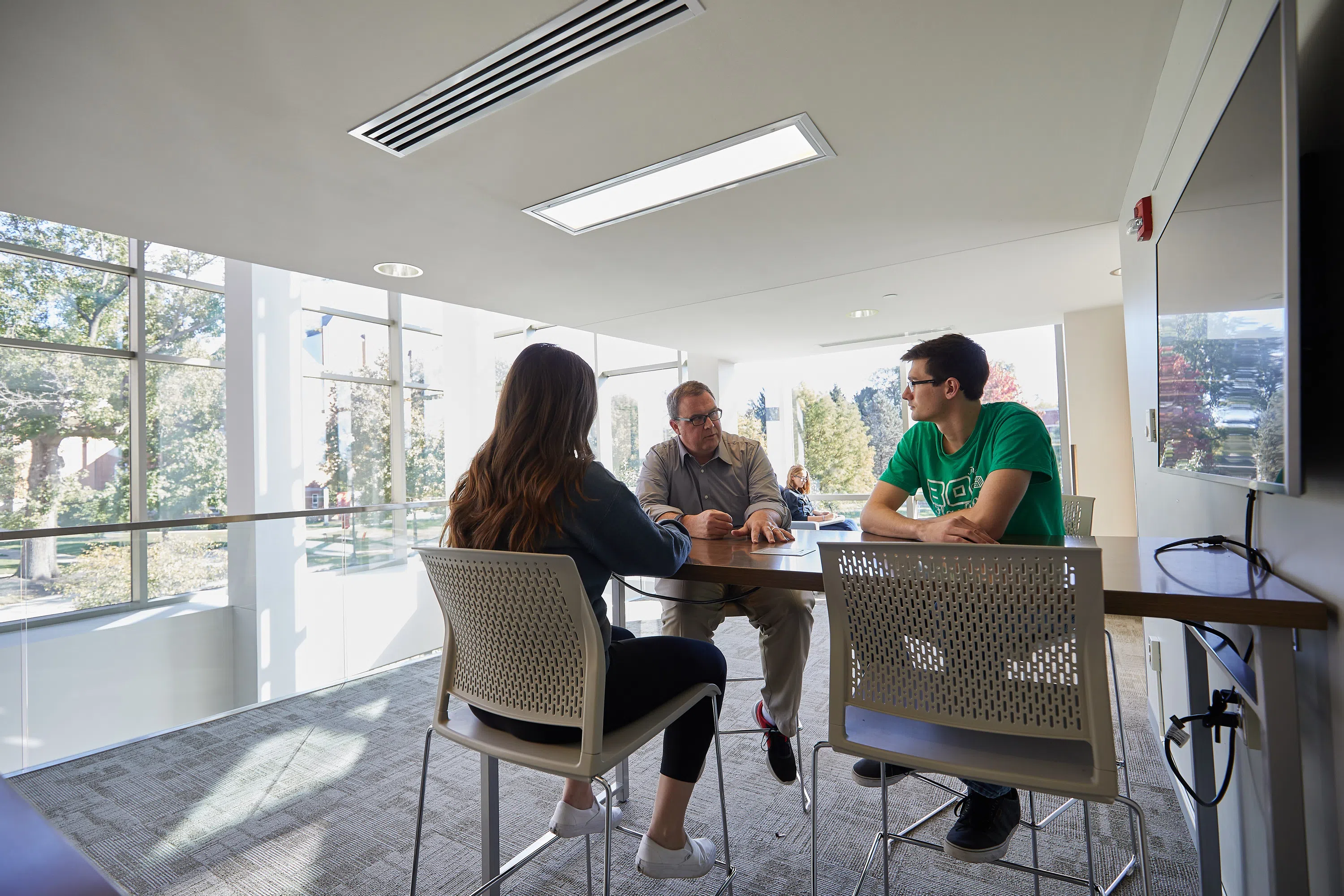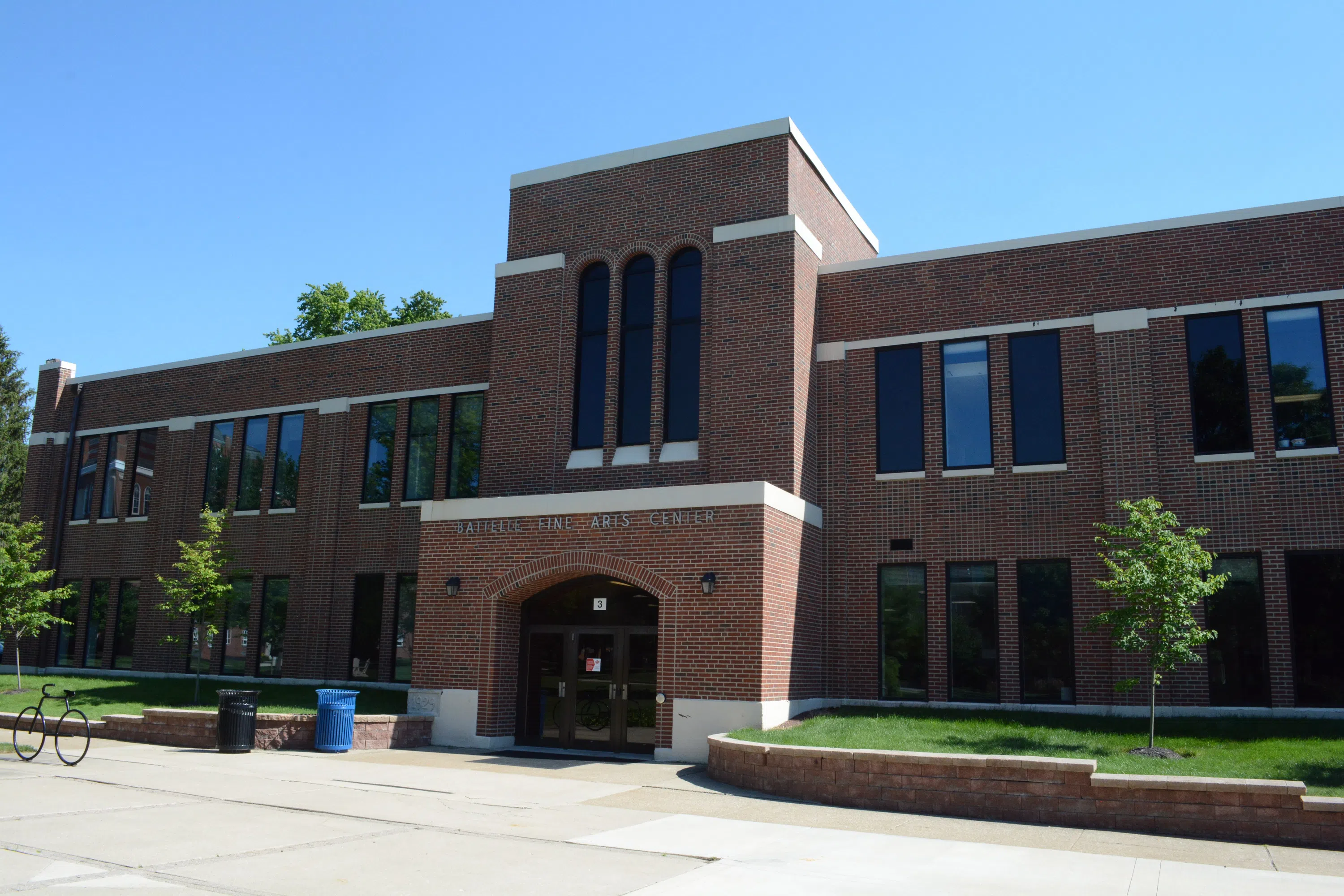WE ARE a smarter way to learn.
We have been since day one. In fact, Otterbein often leads the pack with some of higher education’s boldest initiatives.
Media Gallery
A Smarter Way to Learn
WE ARE 21st century excellence.
WE ARE exploring big topics and ideas as a community.
🌟 A Smarter Way to Learn
Fifty years ago, Otterbein literally led the nation with its ground-breaking Integrative Studies (IS) curriculum. The country’s experts have called Otterbein’s curriculum a model and said that it’s the way colleges should teach.
One of the five goals of the IS curriculum is focused on developing pathways students’ intercultural knowledge and competencies. This means Otterbein students will be prepared to demonstrate sophisticated understanding of the diversity of ideas, beliefs, and practices across cultures and throughout historical eras.
Great teaching is an institutional priority at Otterbein. Individualized mentoring that develops each student’s personal potential guides how professors inspire, challenge and coach student talent. (National rankings put Otterbein in the TOP 10 for BEST UNDERGRADUATE TEACHING, by the way!)
Experiential learning is also something Otterbein does really well. Our commitment is about how we guide our students through owning their knowledge and discovery — by giving you the chance to learn what you know and the chance to put those lessons to work.
Now, Every Student Will, get all of this AND four years of formal training and guidance to not only help them be career-ready – but to ensure they’re prepared to build the lives and careers they want after graduating from Otterbein.
You won’t be limited as right-brained or left-brained here. We want you to be a whole-brained thinker. At Otterbein, that means engineers are ballet dancers, business leaders are musicians, philosophers serve in the Ohio Army National guard, and nurses travel the world to make better connections at home.
It’s not just what you learn — it's about how you learn at Otterbein.
One of the five goals of the IS curriculum is focused on developing pathways students’ intercultural knowledge and competencies. This means Otterbein students will be prepared to demonstrate sophisticated understanding of the diversity of ideas, beliefs, and practices across cultures and throughout historical eras.
Great teaching is an institutional priority at Otterbein. Individualized mentoring that develops each student’s personal potential guides how professors inspire, challenge and coach student talent. (National rankings put Otterbein in the TOP 10 for BEST UNDERGRADUATE TEACHING, by the way!)
Experiential learning is also something Otterbein does really well. Our commitment is about how we guide our students through owning their knowledge and discovery — by giving you the chance to learn what you know and the chance to put those lessons to work.
Now, Every Student Will, get all of this AND four years of formal training and guidance to not only help them be career-ready – but to ensure they’re prepared to build the lives and careers they want after graduating from Otterbein.
You won’t be limited as right-brained or left-brained here. We want you to be a whole-brained thinker. At Otterbein, that means engineers are ballet dancers, business leaders are musicians, philosophers serve in the Ohio Army National guard, and nurses travel the world to make better connections at home.
It’s not just what you learn — it's about how you learn at Otterbein.
⭐ WE ARE 21st century excellence.
WE ARE 21st century excellence.
By blending the liberal arts and professional studies, an Otterbein education gives students a skill set nearly identical to the hiring priorities of the nation’s employers.
Institutionally, we place a value on how studies in all academic programs help students reflect on their knowledge and personal ability to advance the public good just as much as they advance their futures and careers.
This intersection of personal reflection, great teaching and mentoring, curriculum, and immersive learning experiences leads to a great demand for Otterbein talent. Even during a pandemic, 96% of the Class of 2020 reported that they were employed or pursuing graduate studies within six months of graduation.
While powerful learning and discovery happens in all of our academic programs, some areas to note include:
The Women’s, Gender, and Sexuality Studies program at Otterbein seeks a critical understanding of gender, sexuality, and power across cultural contexts, social locations, and disciplinary boundaries.
As a smaller university with a central commitment to liberal learning, we are proud of the fact that we have been part of this rapidly evolving conversation for over a decade. Otterbein offers a major and a minor in Women’s, Gender, and Sexuality Studies. A Women’s, Gender and Sexuality Resource Center is also available on campus.
While the program’s primary focus is the United States, the Race and Ethnic Studies minor at Otterbein regards the processes of racialization and ethnic identity formation as occurring across borders and nations. As the program makes systems of institutionalized marginalization, racial privilege, racial and ethnic superiority, and white supremacist terrorism visible, students gain a critical perspective on both historical and immediate social contexts. As it considers possibilities for ethnic and racial solidarity, students learn strategies for racial and economic justice.
Studying the Humanities at Otterbein means exposure to a breadth and depth of knowledge and experiences with heightened perspective and awareness to better equip you to delve into many of the most challenging and complex issues of our globalized society. A new religion and philosophy major will give students the opportunity to tackle big questions about how we should live, how we should organize our communities, how we should pursue justice and how we make sense of our place in the an increasingly polarized society.
By blending the liberal arts and professional studies, an Otterbein education gives students a skill set nearly identical to the hiring priorities of the nation’s employers.
Institutionally, we place a value on how studies in all academic programs help students reflect on their knowledge and personal ability to advance the public good just as much as they advance their futures and careers.
This intersection of personal reflection, great teaching and mentoring, curriculum, and immersive learning experiences leads to a great demand for Otterbein talent. Even during a pandemic, 96% of the Class of 2020 reported that they were employed or pursuing graduate studies within six months of graduation.
While powerful learning and discovery happens in all of our academic programs, some areas to note include:
The Women’s, Gender, and Sexuality Studies program at Otterbein seeks a critical understanding of gender, sexuality, and power across cultural contexts, social locations, and disciplinary boundaries.
As a smaller university with a central commitment to liberal learning, we are proud of the fact that we have been part of this rapidly evolving conversation for over a decade. Otterbein offers a major and a minor in Women’s, Gender, and Sexuality Studies. A Women’s, Gender and Sexuality Resource Center is also available on campus.
While the program’s primary focus is the United States, the Race and Ethnic Studies minor at Otterbein regards the processes of racialization and ethnic identity formation as occurring across borders and nations. As the program makes systems of institutionalized marginalization, racial privilege, racial and ethnic superiority, and white supremacist terrorism visible, students gain a critical perspective on both historical and immediate social contexts. As it considers possibilities for ethnic and racial solidarity, students learn strategies for racial and economic justice.
Studying the Humanities at Otterbein means exposure to a breadth and depth of knowledge and experiences with heightened perspective and awareness to better equip you to delve into many of the most challenging and complex issues of our globalized society. A new religion and philosophy major will give students the opportunity to tackle big questions about how we should live, how we should organize our communities, how we should pursue justice and how we make sense of our place in the an increasingly polarized society.
🗺 WE ARE exploring big topics and ideas as a community.
Better understanding ourselves and others while also building skills to work and connect with those who think differently from us is an important part of Otterbein’s learning community. A number of annual events, traditions and lectures bring some of the most complex and relevant scholars of the day to campus. Some of those speakers include:
The 2021 Pack Lecture provided a forum for discussion with social justice champions, Nikole Hannah-Jones and Jonathan Kozol, two powerful and tireless voices that have deepened our understanding of the connections between race, equity, and education.
In recent years, Otterbein’s Common Book program, one of the oldest in the nation, has brought the genius of literary voices like Colson Whitehead ("The Underground Railroad"); Bryan Stevenson ("Just Mercy"); Rebecca Skloot ("The Immortal Life of Henrietta Lachs") and Maria Toorpakai ("A Different Kind of Daughter") to campus for powerful discussions with our first-year students.
Access to these kinds of thought-leaders happens across all disciplines — from STEM to the arts, from playwrights to physicists — you will learn from and question great minds as you find your own voice.
The 2021 Pack Lecture provided a forum for discussion with social justice champions, Nikole Hannah-Jones and Jonathan Kozol, two powerful and tireless voices that have deepened our understanding of the connections between race, equity, and education.
In recent years, Otterbein’s Common Book program, one of the oldest in the nation, has brought the genius of literary voices like Colson Whitehead ("The Underground Railroad"); Bryan Stevenson ("Just Mercy"); Rebecca Skloot ("The Immortal Life of Henrietta Lachs") and Maria Toorpakai ("A Different Kind of Daughter") to campus for powerful discussions with our first-year students.
Access to these kinds of thought-leaders happens across all disciplines — from STEM to the arts, from playwrights to physicists — you will learn from and question great minds as you find your own voice.
